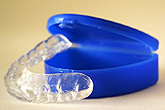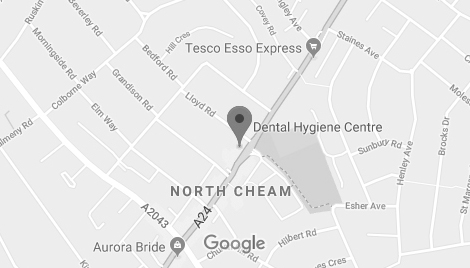Your dental questions answered
Why should I come to the dentist if I'm not in pain?By the time you're in pain, your teeth and gums may have suffered damage. This could result in more work to be done; at worst, you may lose teeth you could have kept.
Far better to make regular visits, at intervals advised by your dentist. Your teeth and gums can be thoroughly examined, and your dentist can 'nip problems in the bud', before they get more serious.
If your teeth and gums are in good shape, your dentist may well recommend a longer interval before your next check-up!
Can my infected tooth be saved?There's only one way to find out, and that's a dental appointment. And it really is a case of 'the sooner the better'. Even if pain appears to subside, the relief could be temporary. The sooner we can act, the better the chance of saving your tooth.
Is there anything I can do about my teeth-grinding?Night time teeth-grinding can cause stress, headaches and aching of the jaws, as well as eroding the teeth themselves. We can make you a custom-made bite guard to wear, to cushion the pressure and protect your teeth.
Can anything be done about my super-sensitive teeth?Sensitive teeth can have many causes: gum disease, teeth grinding, cracked teeth, even brushing too hard, too long or with too stiff a toothbrush.
Or it might be down to tooth erosion, caused by drinking/eating sugary or acidic foods or drinks, such as sweets, fizzy drinks or fruit juice. Try to limit your teeth's exposure to acid attack, and brush properly using special toothpaste made for sensitive teeth – it's widely available and easy to get.
If your problems are severe and/or persist, we may be able to help, using desensitising gel and reinforcing your teeth with protective tooth-coloured restoration.
Sensitive teeth can bring intense discomfort, but it's generally due to contact with cold food, drinks & even air and is temporary. If you have pain that's triggered by heat and/or lasts for hours, you probably have toothache rather than sensitive teeth. If it happens repeatedly, you should definitely come for a check up.

The basics are just as for adults (see "Teeth for life" ). Beyond that, a good dental routine is one of the best gifts you can give your child for life.
At first, it's up to you to brush their teeth regularly – your dental hygienist will show you how, and also advise you on the right toothbrushes and toothpastes to use. Up to three years of age or so, use very little toothpaste (a thin film of paste covering less than ¾ of the brush) and of course, they must NOT eat or lick toothpaste from the tube. As they get older, you can increase the amount a bit, but not too much – never more than about a pea-sized blob of fluoride toothpaste.When they start brushing their own teeth, make sure you oversee them at first, to make sure they're doing it properly. And – in particular – for long enough. Kids love to rush things!
Rinsing with lots of water after brushing should be discouraged – spitting out excess toothpaste is preferable.
Disclosing tablets can help to show areas which are being missed during brushing.
It's also up to you, of course, to ensure that they have regular visits to the dentist, at the intervals recommended. Remember that, under NHS arrangements, dental work for children is free.
When they're babies, try not to be tempted to add sugar to their weaning foods when you introduce them to solids. And for medicines, ask the pharmacist if a sugar-free version is available. Children invariably love sweets and fizzy drinks, and generally anything bad for their teeth! Do your best to steer them towards healthy alternatives – a banana rather than a chocolate bar; water instead of a soft drink.

Remember, the tastes they learn when they're young will be the ones they grown up with. 'A sweet tooth' can all too easily lead to bad teeth – or even no teeth!

If your child plays a vigorous sport like rugby, football, cricket or hockey – not to mention boxing! – a mouth guard may be a very worthwhile investment. They're made of a special rubber that cushions teeth and gums from damage, and your dentist can custom fit one to your child's mouth (and even in a colour they like!) for £65.
Do be aware that mouth guards need to fit snugly to be effective. So if your child's teeth shift (or they move on to their second set) the guard will need to be replaced.




